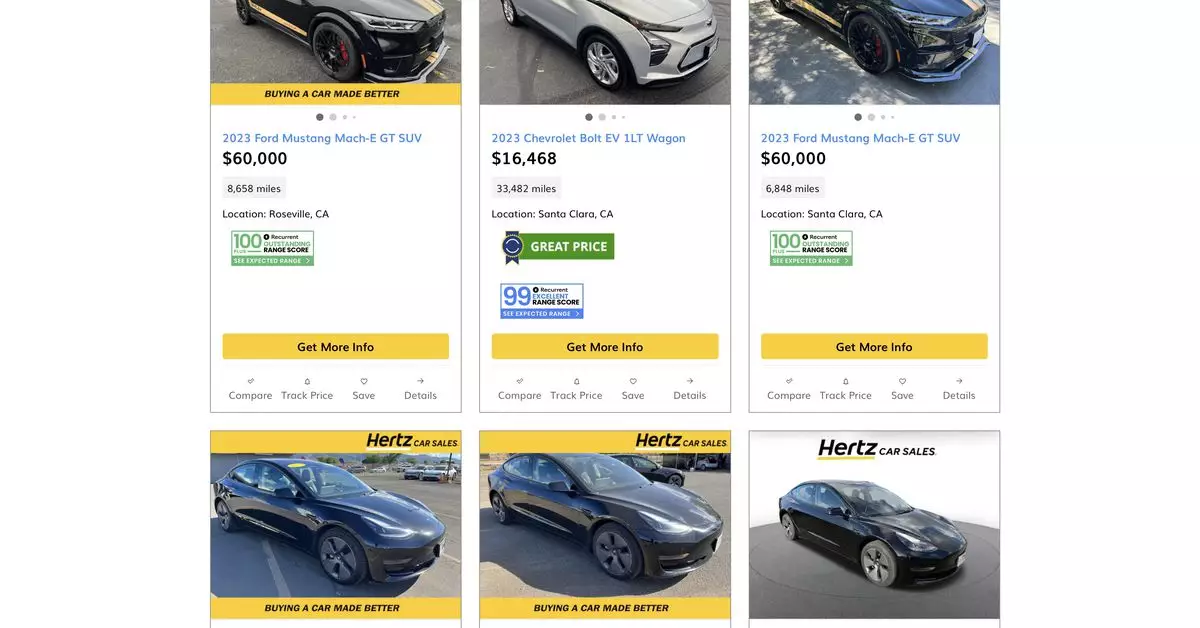Recent advancements in the car rental industry, particularly regarding electric vehicles (EVs), present a fascinating shift in consumer choices. Hertz, a major player in the car rental market, has recently reached out to electric vehicle renters with enticing low-cost purchase offers. This initiative not only reflects a proactive approach by Hertz to connect with its customer base but also illustrates the broader industry trend of integrating rentals with ownership opportunities, particularly for electric vehicles.
The allure of ownership becomes potent when framed within the leasing context. A Reddit user who rented a 2023 Tesla Model 3 shared insights revealing that they received a purchase offer of $17,913, a price comparable to other listings in the Hertz Car Sales inventory categorized by mileage and age. The vehicle in question had about 30,000 miles—less than many competing offers. Meanwhile, another customer with a 2023 Chevy Bolt was presented an attractive price of $18,442. A Polestar 2 renter indicated a price of $28,500, demonstrating a range of opportunities available to renters interested in buying.
While these prices may appear appealing, it’s essential to critically assess what lies behind them. These vehicles, while still relatively new, come with a limited warranty period of just 12 months or 12,000 miles. This condition might deter some potential buyers who prefer longer warranties associated with traditional used car purchases.
Hertz’s communications director, Jamie Line, addressed inquiries regarding the motivation behind these offers. His acknowledgment that connecting rental customers with sales channels is not an entirely novel strategy implies that Hertz is adapting to new market dynamics rather than innovating from scratch. By attracting attention to their vehicle sales, the rental giant is cleverly positioning itself to capitalize on the booming interest in EV ownership.
However, it’s imperative to recognize these offers are likely part of a broader strategy rather than an isolated trend. Hertz had previously curbed its electrification plans due to a mix of repair challenges and lesser-than-expected demand for certain models, including issues with the Model 3. The recent rental-to-purchase offers can be interpreted as a strategy to efficiently recoup investments in its dwindling rental fleet of EVs.
Last year marked a pivotal moment for Hertz as it re-evaluated its ambitious electrification goals. The decision to scale back acquisition plans for cars like the Polestar 2 followed a rocky relationship with some EV models and a changing customer demand landscape. This transition underscores a growing narrative in which rental companies must remain agile, reevaluating their offerings in an evolving market filled with unique consumer expectations.
The initiative by Hertz to pivot their rental customers towards EV ownership is emblematic of a larger trend fitting into the current zeitgeist of environmental consciousness and sustainable transportation. As consumers become more aware of their choices, the need for rental companies to adapt is more crucial than ever, paving the way for a thoughtful integration of renting and buying in the electric vehicle marketplace.

